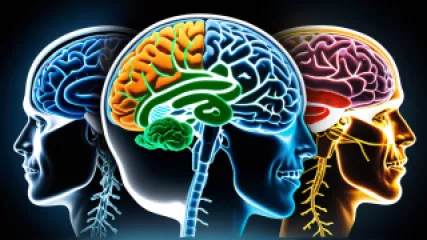Unlocking Emotional Expression: A Research-Driven Approach
1 year ago
Expressing Feelings Effectively
10 Best Self-Improvement Programs Based on Social Comparison Theory
1 year ago
Social Comparison Theory
7 Anxiety Relief Exercises to Try Today
1 year ago
Anxiety Relief Exercises
Nutritional Lessons from The Matrix: Transforming Your Eating Habits
1 year ago
Eating Habits
Exploring the Latest Research on Bipolar Disorder
1 year ago
Bipolar Disorder
Lessons from "The Secret Life of Trees" for Virtual Nature Therapy Sessions
1 year ago
Benefits of Nature
My Journey to Cultivating an Attitude of Gratitude
1 year ago
Psychology of Gratitude
Mastering Emotional Agility: An Ultimate Guide
1 year ago
Developing Emotional Agility
Embracing the Art of Apology: A Transformative Journey
1 year ago
Art of Apology
Practicing Self-Compassion: An Interview with a Mindfulness Expert
1 year ago
Self Compassion Techniques
The Ultimate Guide to Unlocking the Benefits of Volunteering
1 year ago
Volunteering Benefits
Rediscovering the Power of Physical Touch: A Personal Journey
1 year ago
Benefits of Physical Touch
How Fashion Impacts Emotional Well-being: An Interview with a Leading Psychologist
1 year ago
Psychology of Fashion
How Establishing Healthy Boundaries Transformed My Peer Relationships
1 year ago
Peer Relationships
Overcoming Sibling Rivalry: My Journey to Stronger Sibling Bonds
1 year ago
Sibling Rivalry Solutions














